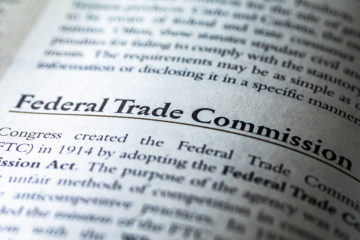Market Institute President Charles Sauer has a new article in the Washington Examiner on how government interference affects the development of new vaccines. Here’s an excerpt:
“Vaccines are now being distributed around the world. However, the process is far from smooth, and many are getting frustrated. They should be. Israel paid a premium and volunteered more data, so its population is now one-third vaccinated, but in the United States, we are still under 10%. The problems involved with vaccine deployment are numerous, but they all lead back to one group: the government.
Politicians are getting in the way.
They got in the way of an efficient production, and now, they are hindering the distribution. We can all remember when the Centers for Disease Control and Prevention insisted that we should not wear masks — or how the CDC bumbled testing and therefore slowed down testing that could have almost immediately slowed the spread of COVID-19.
But because of the dramatic impact of the pandemic (on our families, businesses, and social lives), these can be hard to remember. The problems weren’t just limited to the early days of the pandemic, though. Politicians are still hindering the distribution in many ways — planning, red tape, command and control, power struggles, and protecting their public image.
The problem is that vaccines only really work at scale. If a limited supply of vaccine is distributed equitably around the country, the effects of the vaccine are dampened. On the other hand, if an area is targeted, then the pandemic can be effectively snuffed out. Think about attempting to extinguish a fire with a single squirt gun versus a fire hose. The bigger the blast, the higher the effectiveness.
The more involved the government is in the process and the more control that it takes over the process, the more inefficient it becomes — and the more costly.
Unfortunately, some politicians are looking to get even more involved and are pushing President Biden to step in and take the intellectual property from these vaccines away from the drug manufacturers that made them. They are attempting to talk Biden into using a policy called march-in rights to do so, as well as asking him to support a World Trade Organization waiver that would allow other countries to ignore the intellectual property as well.
There are several problems with this idea. First, it is unlikely to get more vaccines out quickly enough to make any difference. Dr. Anthony Fauci says that everyone who wants a vaccine will able to get one by April at current production levels. Second, the price is already low. Third, it would set a horrible precedent for the next pandemic.
Developing the vaccine is an expensive and non-trivial venture. The companies that developed the vaccines had research and development departments that were already fired up and ready to go. They had the information that they needed and effectively had the vaccine one weekend after they knew the genetics of the virus and even before the World Health Organization declared it a pandemic.
However, at that point, they still had to make it through a long testing process and validation process that took almost a year and lots and lots of money. They also had their reputations on the line. They risked everything, and if the government now takes away the fruits of that risk, they are less likely to take up the challenge next time.
Many government policies are written in reaction to a current problem, but the effects of changes are long-lasting.”
Read the rest of the article in the Washington Examiner by clicking here.


